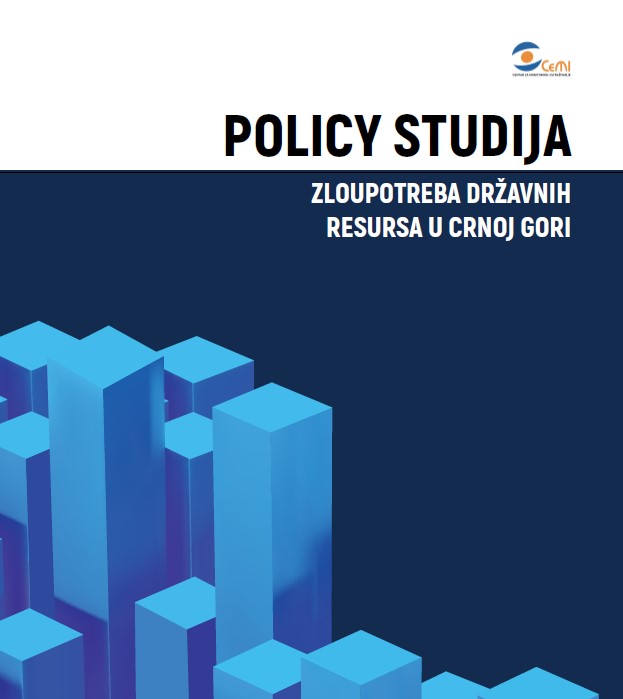The phenomenon of abuse of state resources (ASR) for the election campaign purposes has been manifested in almost all electoral processes since the introduction of multiparty system in Montenegro. Lack of a quality methodological platform for monitoring electoral abuses has significantly determined the possibility of influencing its prevention or suppression for a long period of time. The methodology applied by Transparency Russia and the Open Society Justice Initiative during the election process in Russia served as the basis for new methodological monitoring platform that CeMI, implemented for the first time during election campaign for the early parliamentary elections in 2009. The observations and outcomes of ASR monitoring were discouraging from the very beginning. The extent of presence of ASR resulted in reducing public confidence and led to a crisis of legitimacy of the election results in 2012, 2013 and 2016, putting at risk the competitiveness and transparency of elections.
Since then, recognizing the importance and comprehensiveness of this problem and its negative impact on the democratic environment, our organization invested significant organizational efforts in advocating for the adoption of a specific law that would regulate ASR in election processes. Although policy makers have decided to apply different approach and to regulate ASR through the existing regulation on financing of political entities and electoral campaigns (2015), the fact that ASR was for the first time comprehensively regulated in Montenegro was promising. A window of opportunity that the legal framework will finally enable separation between the state and the ruling political parties was generated. Unfortunately, the practice and manifested ASR forms in recent electoral processes raise serious concerns about the stronghold this phenomenon has in Montenegro.
However, almost 12 years later, and despite significant legislative improvements, we draw similar conclusions about the state of ASR in Montenegro. This is an indicator that in the meantime, there was neither genuine political will, nor sufficient institutional readiness to prevent or eradicate the ASR phenomenon that still threatens the legitimacy and democracy of electoral processes. Electoral processes since 2009 have been marked by widespread use of state resources by the former ruling majority party (DPS) and its junior coalition partners. Although expectations following the democratic change of power in 2020 were high, the current ruling majority and new government’s attitude towards the use of state resources for election campaign purposes has unfortunately not been changed. Legal framework and the efforts of the competent state authorities to prevent the occurrence of ASR remain limited.
Against this backdrop, this policy study intends to present the result of monitoring of abuse of state resources during the last Parliamentary elections (2020) and local elections in Niksic in Herceg Novi (2021). Monitoring activities have been conducted as part of the ECAC project - Supporting Stakeholders in Implementing Anti-Corruption Standards, which CeMI is implementing in cooperation with International Foundation for Electoral Systems (IFES) & CEELI Institute. The study is divided into three chapters.
• Chapter I provides a brief description of state resources and ASR, as well as the forms of ASR.
• Chapter II contains information on most relevant international documents that regulate the area of ASR, as well as an overview of the legal framework governing abuse of state resources in Montenegro.
• Chapter III contains information on the methodology used to monitor ASR during elections, and detailed information on CeMI’s findings. The last chapter contains the conclusions and recommendations.
